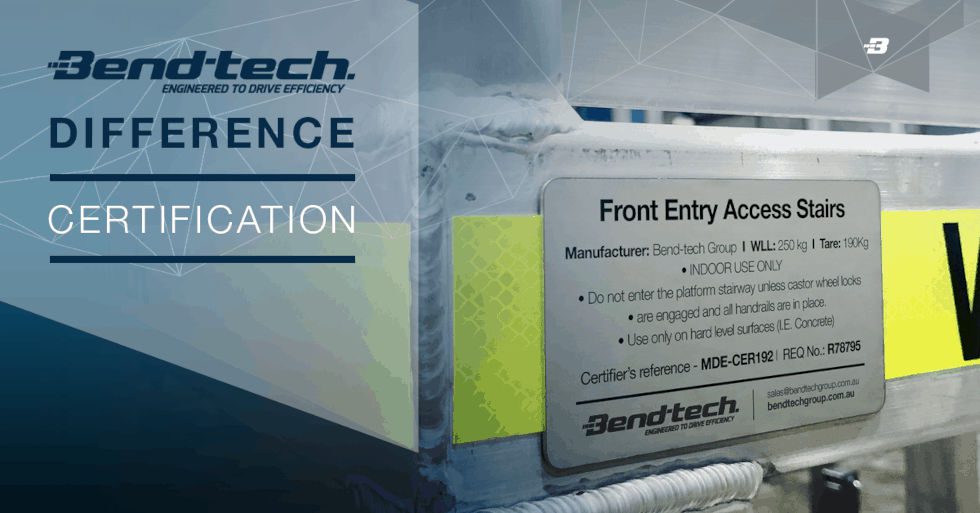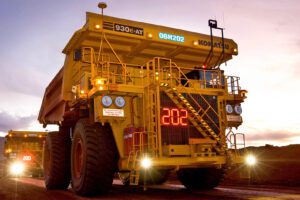Businesses that invest in better workplace safety measures mitigate the risks of workplace accidents which leads to improved profitability, staff morale and greater efficiency. Businesses also have a legal and ethical responsibility to provide a safe place of work for all employees and contractors on site.
For more than 30 years Bend-tech has been enhancing safety and efficiency in the workplace, delivering intelligent design and custom-certified products to the Mining, Defence, Fabrication, Marine and Oil and Gas industries across Australia and around the world. Our commitment to providing the highest quality products means our production is held to the highest possible standard.
What is a standard?
Standards are voluntary documents that outline specifications, procedures, and guidelines. They are aimed at ensuring products, systems and services are reliable, safe, and consistent. Standards are regularly audited and reviewed by the Standards Australia board to ensure they are applicable with current practice and are up to date with new technologies and advancements.
Standards and the law
Standards are, on their own, voluntary, however they are often referred to in legislation, when this occurs, they become a mandatory benchmark of acceptability. Products that do not comply can be considered inferior as they have not passed the certification and testing required of an Australian Standard® compliant product.
Bend-tech’s Certification Process
Stage 1: Preliminary analysis
The first stage of certification begins with our design and engineering team. Once we have received a custom engineering project from a client, a concept drawing is complete and put through FEA (finite element analysis) testing to assess load bearing. Depending on what our client requires, we will choose the appropriate standards to test. Common Australian Standards® that are tested to exceed include:
- AS4100 – Steel Structures
- AS1170 – Structural Design Actions
- AS1657 – Fixed Platforms, Walkways, Stairs and Ladders
- AS1554 – Structural Steel Welding
- AS1892 – Portable Ladders
- AS1576 – Scaffolding
Stage 2: External report
Once our team has reviewed the preliminary report, it is sent to our trusted 3rd party engineers at Metis Design and Engineering. The team at Metis put our concept through similar but more extensive FEA testing to ensure the design complies with the relevant AS standards.
Following approval by Metis, the concept is then submitted to our client in a structured report which is formatted to their specific requirements. If there are any changes required, we will make the adjustments and the revised concept will be put through the necessary tests and re-submitted to our client. This process is repeated until the concept is approved and the final draft is submitted.
Stage 3: Certification and fabrication
To finalise the certification process, the team at Metis will provide us with an engineering certificate and certification plate for the design. The plate is usually engraved with the Australian Standards that are met and the certified weight load limit.
Once the design is fully certified and approved by our client, our production team in Western Australia can commence fabrication.
Conducting this extensive certification process may add some time onto the project, but it ensures every product that leaves Bend-tech is designed, engineered, and constructed to the highest of standards. If you would like more information about the benefits of certification, get in contact with the team today!















Add Comment